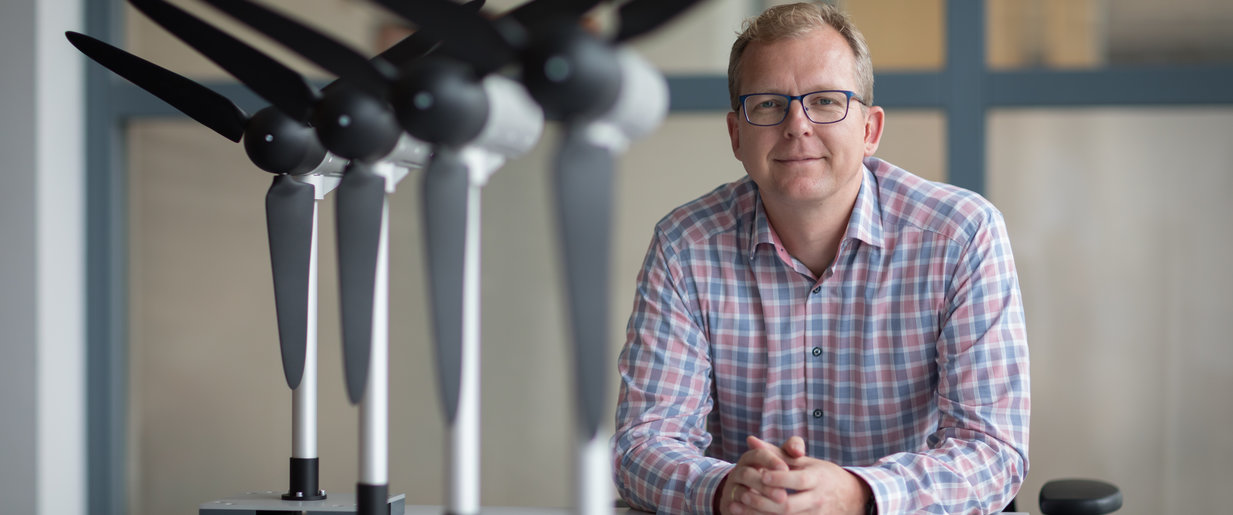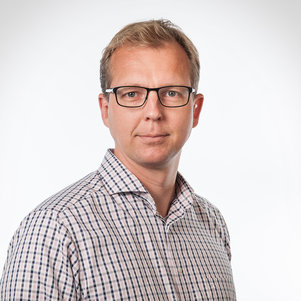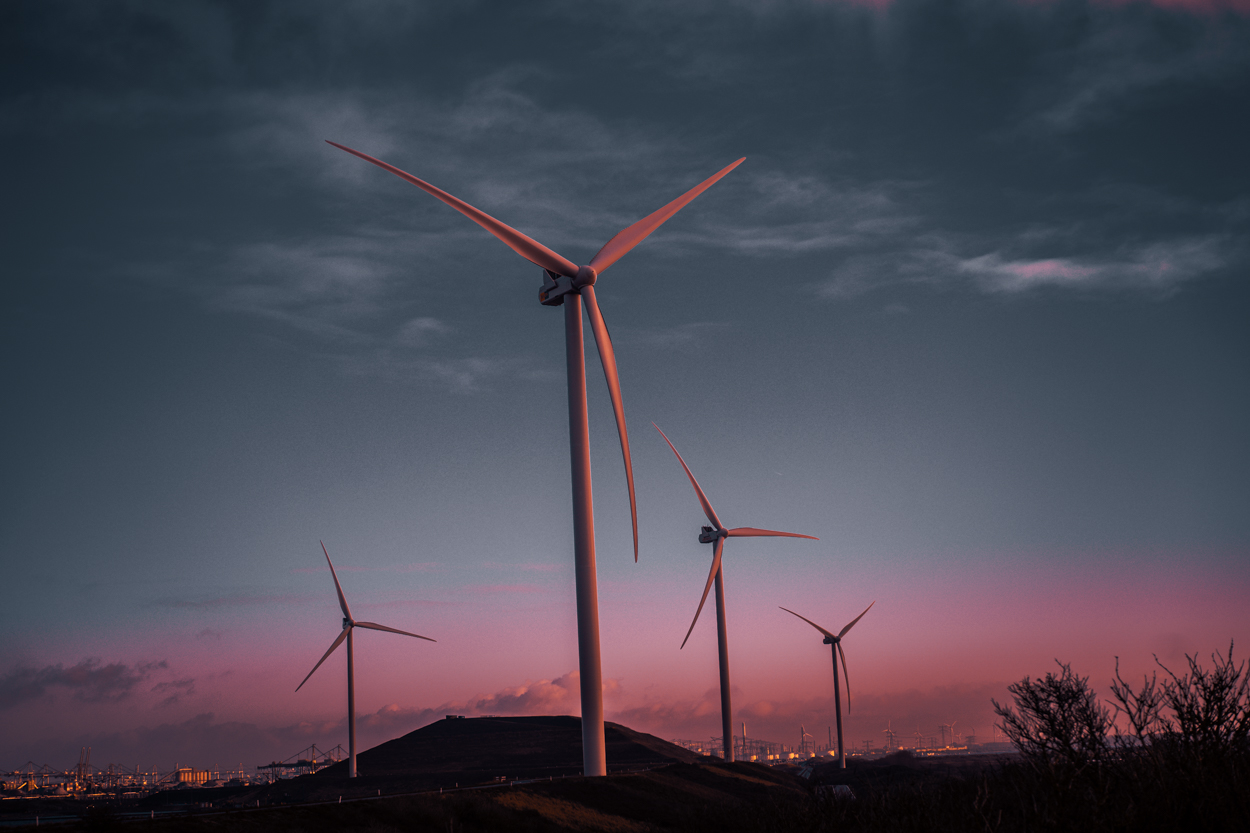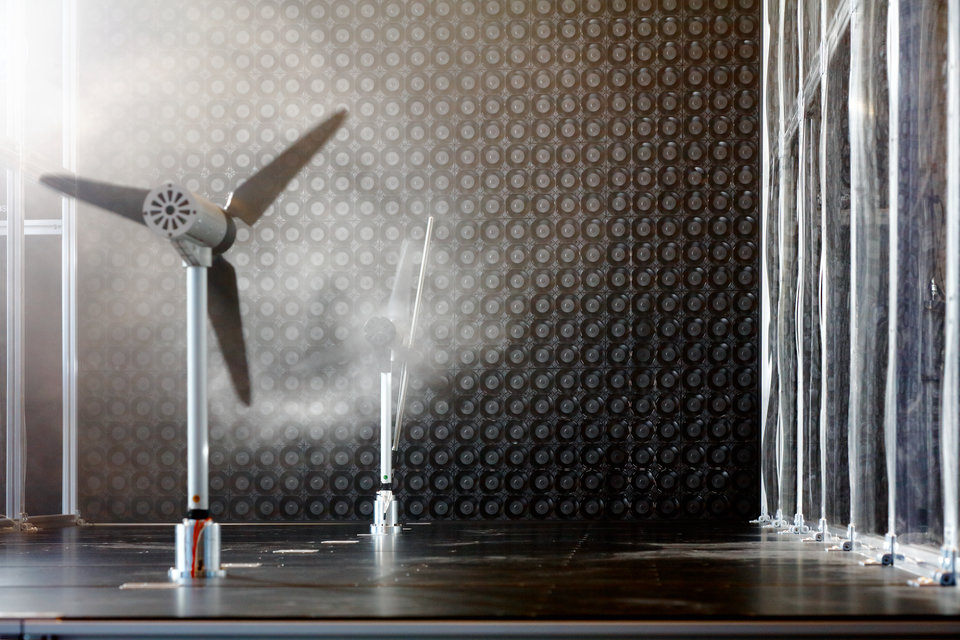Collaborative wind turbines for the most sustainable future
Extracting as much energy as cost-effectively as possible from each individual wind turbine epitomised the short-term approach of the past. But what we need for a climate-neutral and energy-independent Europe is a shift towards sustainable wind energy in the long term, taking into account all costs and aspects – including societal and environmental ones. This is what the wind farm control room of the future is all about.
Wind power is poised to become Europe’s largest source of renewable energy, including a ten-fold increase in wind power capacity in the North Sea. In several previous research projects, TU Delft professor Jan-Willem van Wingerden, Faculty of Mechanical, Maritime Engineering and Materials Engineering (3mE), along with his team and partners, devised ways of optimising the energy yield of entire wind farms using flow control.
‘Deliberately altering or distorting the wake of specific wind turbines, for instance, can enable subsequent turbines to produce more energy or, alternatively, undergo less stressed and therefore show less wear and tear. In a large wind farm, this flow control provides, almost out of nothing, the equivalent of an additional wind turbine, capable of powering tens of thousands of homes.’
The logical progression for wind turbines that collectively reach their targets is to also hold those targets to a critical light. This is how the SUDOCO project application came about, which received the highest possible score and was awarded a €5.7 million grant from the European Commission.
Looking beyond quick gains
The project also focuses on wind farm flow control, a speciality of TU Delft. The partners aim to thoroughly investigate this by collecting high-quality data from measurements in wind farms and a large wind tunnel. ‘We will use machine learning techniques on this data to develop measurement and control algorithms that will allow us to dynamically control an entire wind farm – on a time scale of seconds instead of the current ten minutes. But what makes the project truly unique is that we’re using these algorithms to look far beyond the pursuit of quick gains. Instead, we’re also taking into account the long-term environmental and social impact in the decision-making process to control the wind farm.’
The consortium will solve a high-dimensional, real-time optimisation problem that takes into account not only price fluctuations, but also security of supply, extending the life of wind turbines, the depletion of scarce resources such as water and rare metals, the overall impact on greenhouse gas emissions, and local energy storage in hydrogen and batteries.

Wind farm control room of the future
The result of the project is an open-source software package – the wind farm control room of the future – that advises wind farm operators. ‘For example, at low wind speeds, when the price of electricity is higher, you aim for maximum energy output. This also reduces the carbon emissions of the total energy demand. When the wind speed is high and the price of electricity is lower, you can minimise wear on certain turbines by adjusting the controls or you can choose to store energy locally, so you can reduce the environmental impact at another time.’
But it doesn’t stop there. Once the control room software is available, it can also be used to design future wind farms differently. ‘Once you know what you can control, you may be able to put the turbines closer together. This could be especially beneficial at sea, where the turbines are bigger and the wakes are more stable.’ The project partners can hardly wait to get started. ‘On 16 and 17 October, the project will officially start with a physical kick-off meeting here in Delft.’
The SUDOCO project (SUstainable resilient Data-enabled Offshore wind farm and COntrol co-design) is a collaboration between TU Delft, Danmarks Tekniske Universitet, Technische Universitet München, Politecnico di Milano, Shell, SOWENTO and Youwind Renewables, with an advisory board consisting of Siemens-Gamesa, NREL, Applied Risk, Windesco and Crosswind.


